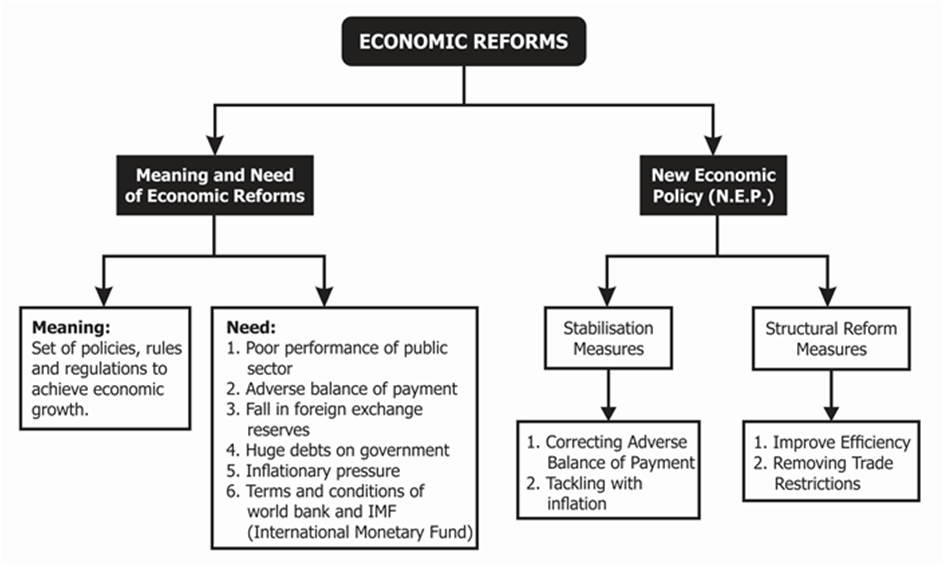Economic Reforms
Meaning: Economic reforms refer to the fundamental changes that were launched in 1991 with the plan of liberalizing the economy and quickening its rate of economic growth. The Narasimha Rao Government, 1991, started the economic reforms to rebuild internal and external faith in the Indian economy.
In other words, ‘“economic reforms’” normally indicate deregulation or at times, a decrease in the size of government, to eliminate deformities caused by the management or the presence of administration, rather than current or raised regulations or government plans to lessen the perversions created by market failure.

Reasons for Economic Reforms
- Poor performance of the public sector
- Public sector was given an important role in development policies from 1951–to 1990.
- However, the performance of the majority of public enterprises was disappointing.
- They were incurring huge losses because of inefficient management.
- Adverse BoP or imports exceed exports
- Imports grew at a very high rate without matching the growth of exports.
- Government could not restrict imports even after imposing heavy tariffs and fixing quotas.
- On the other hand, exports were very less due to the low quality and high prices of our goods as compared to that of foreign goods.
- Fall in foreign exchange reserves
- Foreign exchange (foreign currencies) reserves, which the government generally maintains to import petrol and other important items, dropped to the levels that were not sufficient for even a fortnight.
- The government was not able to repay its borrowings from abroad.
- Huge debts to government
- Government expenditure on various developmental works was more than its revenue from taxation.
- As a result, the government borrowed money from banks, public and international financial institutions like the IMF, etc.
- Inflationary pressure
- There was a consistent rise in the general price level of essential goods in the economy.
- To control inflation, a new set of policies were required.
- Inefficient Management
- The government was not able to generate sufficient revenue from internal sources such as taxation, running of public sector enterprises, etc.
- Government expenditure began to exceed its revenue by such large margins that it became unsustainable.
- At times, the foreign exchange borrowed from other countries and international financial institutions was spent on meeting consumption needs.

 PathSet Publications
PathSet Publications
